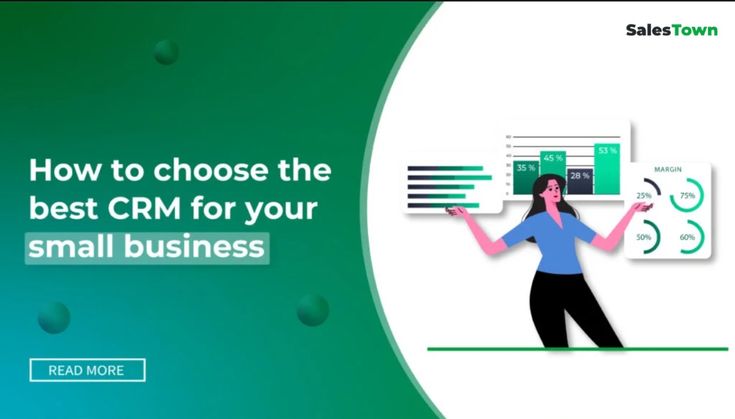
CRM and Customer Retention: Strategies for Success
In the realm of business, acquiring new customers often takes center stage, but retaining existing customers is equally, if not more, critical for long-term success. Customer retention not only ensures a stable revenue stream but also enhances brand loyalty and reduces marketing costs. Customer Relationship Management (CRM) systems play a pivotal role in developing and executing effective customer retention strategies. Here, we explore how CRM can be leveraged to improve customer retention and outline key strategies for success.
Understanding Customer Retention
Customer retention refers to the ability of a company to retain its customers over a specified period. High customer retention rates indicate that customers are satisfied with the products or services and are less likely to switch to competitors. Effective retention strategies focus on building strong relationships, enhancing customer satisfaction, and delivering consistent value.
The Role of CRM in Customer Retention
- Centralized Customer Data: CRM systems consolidate customer data from various touchpoints, creating a comprehensive view of each customer. This centralized data repository includes information on purchase history, preferences, interactions, and feedback, enabling businesses to understand their customers better.
- Personalized Communication: Personalized communication is a cornerstone of customer retention. CRM systems enable businesses to segment their customer base and deliver tailored messages and offers that resonate with individual customers. Personalization makes customers feel valued and understood, fostering loyalty and engagement.
- Proactive Customer Service: CRM systems facilitate proactive customer service by tracking customer interactions and identifying potential issues before they escalate. By addressing concerns promptly and effectively, businesses can enhance customer satisfaction and prevent churn.
- Loyalty Programs: Integrating CRM with loyalty programs allows businesses to reward customers for their repeat purchases and engagement. CRM systems can track customer activities and reward points, making it easy to implement and manage loyalty initiatives that incentivize retention.
- Customer Feedback and Insights: Gathering and analyzing customer feedback is crucial for improving products and services. CRM systems provide tools for collecting feedback through surveys, reviews, and direct interactions. Analyzing this feedback helps businesses identify areas for improvement and take corrective actions to enhance customer satisfaction.
Strategies for Success in Customer Retention
- Deliver Exceptional Customer Service: Exceptional customer service is the foundation of customer retention. Ensure that your customer service team is well-trained, responsive, and equipped with the tools they need to resolve issues efficiently. CRM systems can help by providing a 360-degree view of the customer, enabling service agents to offer personalized support.
- Engage Customers Regularly: Regular engagement keeps your brand top-of-mind for customers. Use CRM tools to schedule and automate regular communications, such as newsletters, product updates, and personalized offers. Engagement should be consistent but not overwhelming, providing value with each interaction.
- Implement a Customer Onboarding Program: A structured onboarding program helps new customers get the most out of your products or services. Use CRM to track the onboarding process and ensure that customers receive timely assistance and resources. Effective onboarding sets the stage for long-term satisfaction and loyalty.
- Analyze Customer Behavior: Leverage CRM analytics to monitor customer behavior and identify patterns that indicate satisfaction or dissatisfaction. Understanding these patterns allows you to tailor your retention strategies to address specific needs and preferences. For example, if a customer shows signs of reduced engagement, a targeted retention campaign can re-engage them.
- Offer Personalized Incentives: Personalized incentives, such as discounts, exclusive offers, and rewards, can motivate customers to remain loyal to your brand. Use CRM data to identify the most appealing incentives for different customer segments and deliver them at the right time.
- Solicit and Act on Feedback: Actively solicit feedback from your customers and demonstrate that their opinions matter. Use CRM tools to send surveys and track responses. Analyze the feedback to identify trends and implement changes that address customer concerns. Showing customers that you value their input can significantly enhance loyalty.
- Monitor and Reward Loyalty: Recognize and reward loyal customers through a structured loyalty program. Use CRM to track customer activities and reward points. Offer tiered rewards to incentivize higher levels of engagement and repeat purchases. Celebrating milestones, such as anniversaries and birthdays, with special offers can also strengthen customer bonds.
- Predict and Prevent Churn: Predictive analytics within CRM systems can identify customers at risk of churning. By analyzing historical data and customer behavior, businesses can implement preemptive measures to retain these customers. Personalized retention campaigns, special offers, and proactive outreach can help prevent churn and retain valuable customers.
Conclusion
Customer retention is a critical component of long-term business success, and CRM systems provide the tools needed to implement effective retention strategies. By leveraging CRM to centralize customer data, personalize communication, deliver proactive service, and gather valuable insights, businesses can enhance customer satisfaction and loyalty. Implementing the strategies outlined above can help businesses not only retain their existing customers but also create a loyal customer base that advocates for the brand and drives sustained growth. In an increasingly competitive market, focusing on customer retention through CRM is a strategic move that offers significant benefits and a competitive edge.